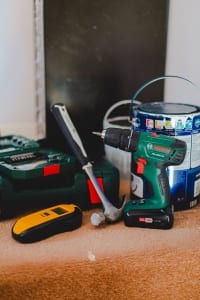Some temptations are hard to resist. For me, it can be especially challenging to turn down that last piece of chocolate cake.
While driving, we typically hear that “ding” on our phone, alerting us to a text or call coming through, and we sometimes feel the urgent need to check it. We know we shouldn’t, but we reason that we’re going to make an exception––just this once.
So, why do we indulge in behavior we know to be wrong, dangerous and in many states, illegal? Call it hubris. According to AAA research, most people feel they are better-than-average drivers. Afterall, we have busy lives and are accustomed to multitasking. But mounds of research and thousands of deaths every year prove otherwise.
August is Back to School Safety Month. As a new school year begins with young drivers and school buses back on the road, I thought it would be a good time to remind folks, including myself, of the dangers of distracted driving.
The reality is that using a phone while driving creates enormous potential for injuries and fatalities. Distractions take a motorist’s attention off driving, which can make a driver miss critical events, objects and cues, potentially leading to a crash.
According to the National Highway Traffic Safety Administration, one of every 10 fatal crashes in the U.S. involves distracted driving, resulting in more than 3,000 deaths annually. I find this statistic heartbreaking considering so many of these accidents could easily be avoided if we’d simply put down our phones while driving.
Distracted driving is considered any activity that diverts our attention, including texting or talking on the phone, and adjusting the navigation or entertainment system. Texting is by far one of the most dangerous distractions. Sending or reading one text takes your eyes off the road for an average of five seconds. At 55 mph, that’s like driving the length of an entire football field with your eyes closed.
In addition to refraining from texting while driving, we can help keep the roads safe by moving over for first responders and other emergency vehicles. Additionally, if you see utility crews conducting work near the roadside, I’d encourage you to move over when possible and give them extra space to perform their work safely.
For Tennessee’s electric co-ops, safety is foremost in everything we do––for our employees and the members of the communities we serve. We routinely remind our crews of the dangers of distracted driving, and we hope you’ll have similar conversations with your teens who may be new to the roadways and are especially susceptible to the lure of technology.
Let’s work together to keep everyone safe on the roads. Remember: that text can wait and waiting just might save a life.
Anne Prince writes on consumer and cooperative affairs for the National Rural Electric Cooperative Association, the national trade association representing more than 900 local electric cooperatives.


